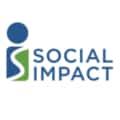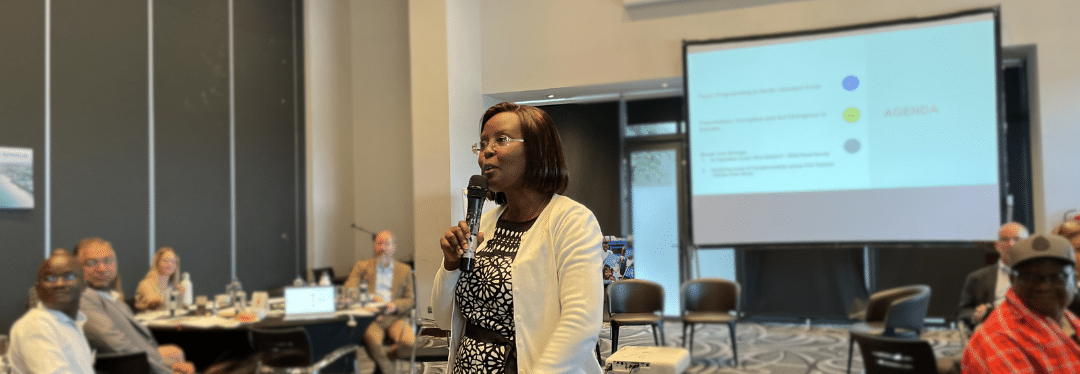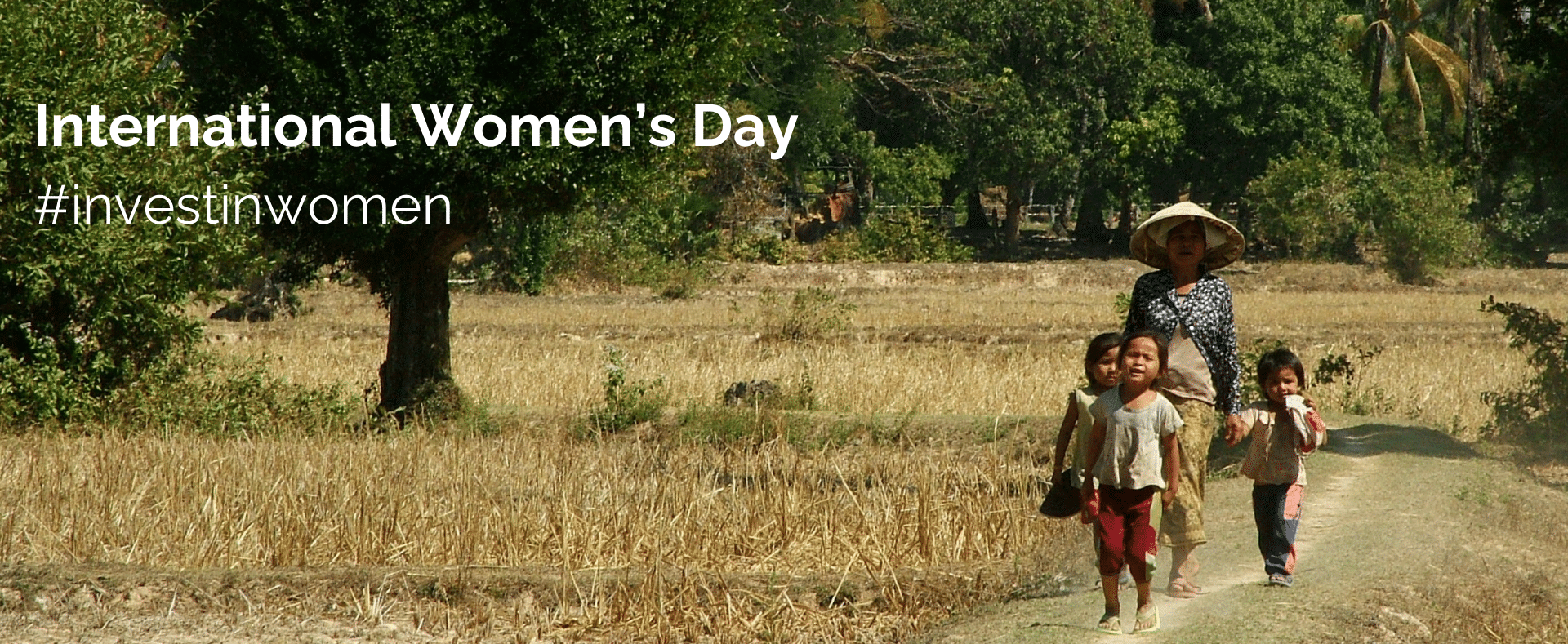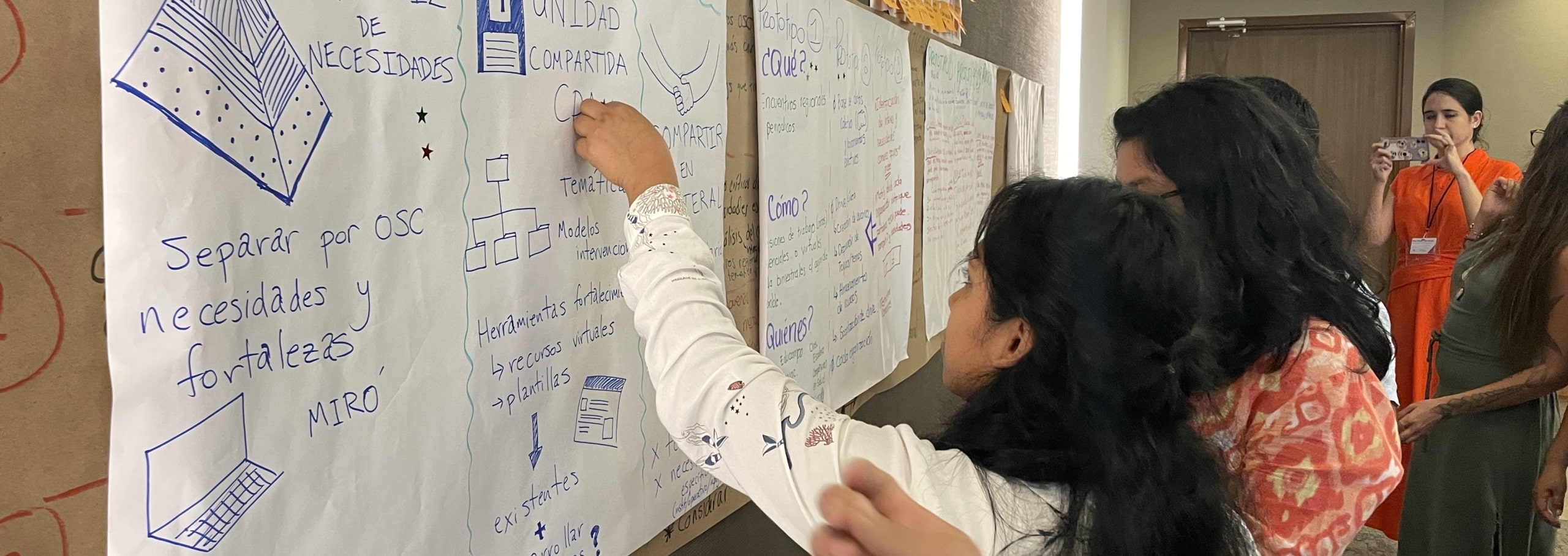Social Impact evaluated the Educate Girls End Poverty program (EGEP), implemented by Relief International in Somalia from 2014-2017. EGEP is part of the Department for International Development (DFID) Girls’ Education Challenge (GEC). The program aims to increase learning scores, enrollment, and attendance among marginalized girls. In Somalia the primary school attendance rate is only 23 percent. Educate Girls End Poverty is working to tackle these issues by implementing a holistic package of education-targeted interventions.
The results showed the positive impact of interventions such as sanitary kits, latrines, and solar lamps, as well as inconclusive results for teacher training and some school-feeding programs. Further, interventions were shown to have the greatest impact among certain types of marginalized girls, in particular with rural and drought-affected populations. SI also found that financial issues represented one of the largest barriers to enrollment.
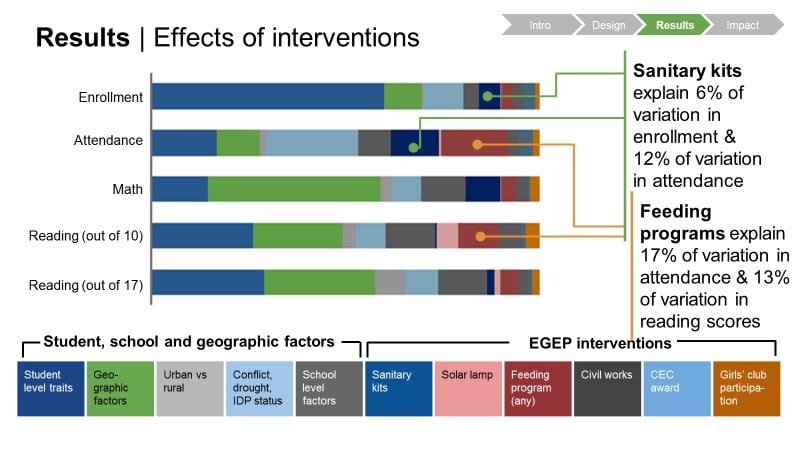
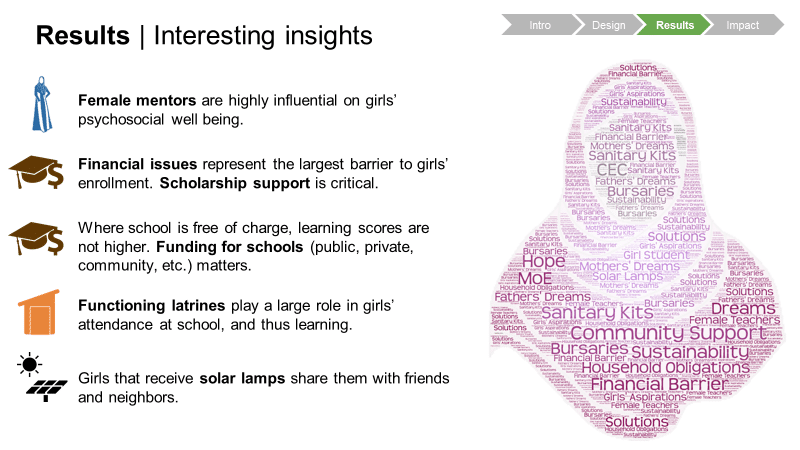 Using the results of the evaluation, the implementer scaled up, revised, or discontinued some of its activities in order to increase its impact. At the regional level the follow-on program discontinued activities that weren’t having a great enough affect and directed funding towards the highest performing interventions. Nationally the program began to allocate more resources to drought-affected girls, where the interventions were most successful.
Using the results of the evaluation, the implementer scaled up, revised, or discontinued some of its activities in order to increase its impact. At the regional level the follow-on program discontinued activities that weren’t having a great enough affect and directed funding towards the highest performing interventions. Nationally the program began to allocate more resources to drought-affected girls, where the interventions were most successful.
This project received an Impact Award from Social Impact for demonstrating a compelling story of the impact of our work on development. You can watch the award application video here.

